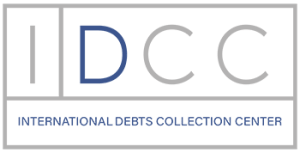The world of international debt collections is filled with complexity and challenges. As economies become increasingly interconnected, businesses and individuals find themselves dealing with debts owed to us by entities in different parts of the world.
This global web of owed funds creates a daunting task for debt collectors, who must navigate through different legal systems, cultural norms, and communication barriers. Global recovery challenges have only intensified in recent times, as the pandemic has disrupted economies and pushed many businesses and individuals into financial distress.
In this article, we delve into the intricacies of tackling the global recovery challenge, exploring the various obstacles that debt collectors face, the strategies we employ, and the potential solutions that can lead to successful debt recovery in today’s interconnected world.
Table of Contents
1. Introduction: Understanding International Debt Collections
When dealing with cross-border debt recovery, it is important to consider the factors that can affect successful retrieval. Effective strategies for negotiating international debts involve thorough research and preparation. This includes understanding cultural norms, language barriers, and local regulatory requirements.
Overcoming challenges presented by foreign legal systems requires careful navigation and collaboration with experienced professionals specializing in international debt collections. To avoid legal consequences and build trust with debtors, it is crucial to maintain compliance with international debt collection laws.
By implementing these tips and best practices, you can enhance your chances of recovering outstanding debts across borders and minimize the financial risks associated with international trade.
2. Key Considerations for Cross-Border Recovery
The International Association of Commercial Collectors (IACC) offers valuable insights and resources to international debt collectors. They provide guidance on key considerations for cross-border recovery, such as cultural norms, language barriers, and local regulatory requirements. By utilizing the expertise and resources offered by the IACC, debt collectors can develop effective strategies for negotiating international debts and overcome challenges presented by foreign legal systems.
Maintaining compliance with international debt collection laws is crucial to avoid legal issues and protect the reputation of debt collectors. The IACC emphasizes the importance of staying up to date with the laws and regulations in the countries where debt collectors operate. This includes understanding the legal frameworks for debt collection, ensuring proper documentation and notification processes, and adhering to ethical standards. By following the guidance provided by the IACC, debt collectors can navigate the complexities of international debt recovery with confidence and minimize financial risks in cross-border transactions.
3. Effective Strategies for Negotiating International Debts
As businesses expand globally, the challenge of collecting international debts becomes more prominent. Recovering debts across borders requires understanding various factors that can impact collection success. Cultural norms, language barriers, and local regulations can all play significant roles in international debt recovery. Staying informed about best practices and industry insights is crucial for tackling this global recovery challenge, according to the International Association of Commercial Collectors (IACC). The IACC provides valuable resources and expertise in international debt collections, offering guidance on navigating legal systems, compliance requirements, and negotiation strategies. By leveraging these insights, businesses can effectively recover debts and minimize financial risks associated with international trade.
An important aspect of resolving the global recovery challenge is adopting effective strategies for negotiating international debts. Understanding cultural nuances and customs of the debtor’s country can significantly influence negotiation outcomes. Flexibility and adaptability are essential when dealing with diverse markets, and considering preferred communication channels and negotiation modes can facilitate success. Staying updated with legal systems and regulations of each country involved in the recovery process is crucial. Each jurisdiction may have its own unique legal frameworks and requirements, adding complexity to the global recovery challenge. Maintaining compliance with international debt collection laws ensures a seamless recovery process and safeguards the reputation and financial stability of the business. By using a strategic approach to negotiating international debts and adhering to legal protocols, businesses can confidently navigate the global recovery challenge.
4. Overcoming Challenges of Legal Systems in Foreign Countries
Foreign legal systems can present significant challenges to international debt collection. Each country has its own laws, procedures, and regulations that govern the debt recovery process, making it crucial to understand and navigate the specific legal landscape. This requires a deep understanding of local practices, court systems, and legal frameworks.
One primary challenge with foreign legal systems is their complexity and unfamiliarity. Language barriers, cultural differences, and varying procedures can impede the swift collection of debts. Moreover, engaging legal representation in a foreign jurisdiction can be costly and time-consuming. It is crucial to collaborate with experienced legal professionals who are familiar with international debt collections and have a network of contacts in foreign countries. By leveraging their expertise and local knowledge, it becomes possible to overcome legal system challenges and improve the chances of successful debt recovery.
5. Tips for Maintaining International Debt Collection Compliance
Complying with international debt collection laws is crucial for successful debt recovery. Each country has its own regulations and guidelines for debt collection. It is important to familiarize yourself with these legal requirements to avoid legal problems. Compliance ensures that collection efforts are ethical and within the law. Staying updated with changes in international legislation and partnering with reputable legal advisors can help navigate the complexities of debt collection compliance. Minimizing financial risks in international trade through debt collection compliance is very important. Non-compliance can result in financial penalties, damage to reputation, and strained business relationships. Debt collection compliance also helps build trust with debtors and shows a commitment to ethical practices. Managing language barriers, cultural differences, and varying legal systems while staying compliant requires a comprehensive approach. Using specialized debt collection agencies that understand international laws and regulations can be an effective strategy. By prioritizing compliance, businesses can protect their interests, improve recovery rates, and maintain positive relationships with customers and partners worldwide.
articly.ai tagvoicedrop.ai tag
Frequently Asked Questions
International debt collection refers to the process of collecting outstanding debts from debtors located in foreign countries.
Some of the challenges in international debt collections include language barriers, cultural differences, legal complexities, and difficulty in locating debtors.
International debt collection is important for creditors as it allows them to recover their outstanding debts and minimize financial losses.
International debt collection typically involves identifying and locating the debtor, contacting them to negotiate repayment, and using various collection methods such as correspondence, phone calls, and legal actions if necessary.
Some key strategies for conquering international debt collections include hiring specialized international debt collection agencies, understanding local laws and regulations, utilizing skip tracing techniques to locate debtors, and building strong relationships with local partners.
The time taken to recover international debt can vary depending on various factors such as the country, the debtor’s willingness to cooperate, debt amount, and the effectiveness of the debt collection strategy.
‘Final remarks’
International debt collections can be a complex and intricate process, navigating through different legal systems, cultural norms, and language barriers. It requires a deep understanding of international finance, laws, and regulations, as well as effective communication and negotiation skills.
With the globalization of businesses and the increase in cross-border transactions, international debt collections have become more prevalent and crucial in today’s interconnected world. The main objective of international debt collections is to recover outstanding debts owed by individuals or businesses in foreign countries.
This can be particularly challenging due to the differences in legal systems and practices across countries. Each jurisdiction has its own laws and regulations governing debt collection, which means that debt collectors must be well-versed in the specific laws of the country they are operating in.
Language barriers also pose a significant challenge in international debt collections. Effective communication is key to resolving debt issues, but when parties speak different languages, it can be difficult to convey the necessary information and negotiate effectively.
Debt collectors often need to work with translators or engage in multilingual negotiations to bridge the language gap and ensure clear communication. Cultural norms and practices can further complicate international debt collections.
Different countries have varying attitudes towards debt repayment, and what may be considered acceptable in one culture may not be in another. Debt collectors must be aware of these cultural nuances and adapt their strategies accordingly.
Understanding local customs, traditions, and sensitivities can make a significant difference in successfully recovering debts. Another challenge in international debt collections is the collection of debts across borders.
The collection process often involves coordinating with local authorities, law enforcement agencies, and court systems, which can be time-consuming and bureaucratic. Debt collectors must navigate through these processes while maintaining compliance with local laws and regulations.
In recent years, technology has played a significant role in streamlining international debt collections. Advanced software and digital platforms have made it easier to track and manage debts across borders, automate collection processes, and improve communication with debtors.
These technological advancements have increased the efficiency and effectiveness of international debt collections, and continue to evolve to meet the growing demands of the global marketplace. In conclusion, international debt collections are a crucial aspect of modern finance, helping businesses and individuals recover outstanding debts in foreign countries.
The complexities and challenges involved in this process require deep knowledge, effective communication, and cultural sensitivity. With the globalization of businesses and the advancements in technology, international debt collections continue to evolve, providing more efficient and streamlined solutions for debt recovery in the interconnected world we live in.










